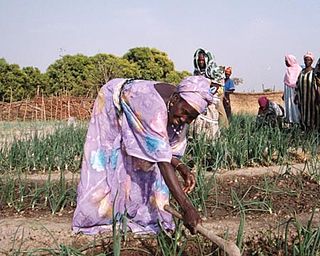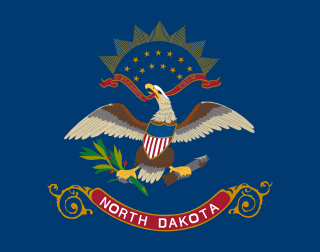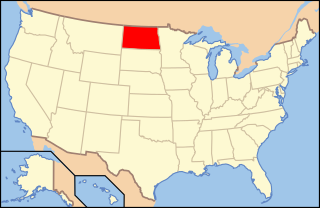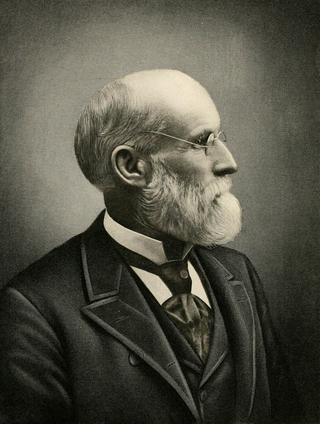
A cooperative is "an autonomous association of persons united voluntarily to meet their common economic, social and cultural needs and aspirations through a jointly owned and democratically-controlled enterprise". Cooperatives are democratically controlled by their members, with each member having one vote in electing the board of directors. They differ from collectives in that they are generally built from the bottom-up, rather than the top-down. Cooperatives may include:
The Nonpartisan League (NPL) was a left-wing political party founded in 1915 in North Dakota by Arthur C. Townley, a former organizer for the Socialist Party of America. On behalf of small farmers and merchants, the Nonpartisan League advocated state control of mills, grain elevators, banks, and other farm-related industries in order to reduce the power of corporate and political interests from Minneapolis and Chicago.
The Agricultural Wheel was a cooperative alliance of farmers in the United States. It was established in 1882 in Arkansas. A major founding organizers of the Agricultural Wheel was W. W. Tedford, an Arkansas farmer and school teacher. Like similar farmer organizations such as the Southern Farmers' Alliance, the Louisiana Farmers' Union, and the Brothers of Freedom, the Agricultural Wheel had been formed to expose and correct the injustices and oppressions done to the small farmers by merchants, grain elevators and the railroads. The Wheel promoted a radical agenda including currency expansion through free silver; closing all national banks; regulation or nationalization of the railroads, the telephones and the telegraph; allow only Americans to purchase public lands; impose an income tax on high incomes; and elect senators by popular election instead of by state legislatures. The Wheel encouraged farmers to join local cooperatives, avoid the debt cycle, and avoid one crop overemphasis on cotton.

The National Grange, a.k.a. The Grange, officially named The National Grange of the Order of Patrons of Husbandry, is a social organization in the United States that encourages families to band together to promote the economic and political well-being of the community and agriculture. The Grange, founded after the Civil War in 1867, is the oldest American agricultural advocacy group with a national scope. The Grange actively lobbied state legislatures and Congress for political goals, such as the Granger Laws to lower rates charged by railroads, and rural free mail delivery by the Post Office.
Czechoslovakia, of all the East European countries, entered the postwar era with a relatively balanced social structure and an equitable distribution of resources. Despite some poverty, overall it was a country of relatively well-off workers, small-scale producers, farmers, and a substantial middle class. Nearly half the population was in the middle-income bracket. It was a balanced and relatively prosperous Czechoslovakia that carried nationalization and income redistribution further than any other East European country. By the mid-1960s, the complaint was that leveling had gone too far. Earning differentials between blue-collar and white-collar workers were lower than in any other country in Eastern Europe. Further, equitable income distribution was combined in the late 1970s with relative prosperity. Along with East Germany and Hungary, Czechoslovakia enjoyed one of the highest standards of living of any of the Warsaw Pact countries through the 1980s.

The Great Lakes region of Northern America is a binational Canadian–American region centered around the Great Lakes that includes the U.S. states of Illinois, Indiana, Michigan, Minnesota, New York, Ohio, Pennsylvania, and Wisconsin and the Canadian province of Ontario. Canada's Quebec province is at times included as part of the region because the St. Lawrence River watershed is part of the continuous hydrologic system. The region forms a distinctive historical, economic, and cultural identity. A portion of the region also encompasses the Great Lakes megalopolis.

The Farmers' Alliance was an organized agrarian economic movement among American farmers that developed and flourished ca. 1875. The movement included several parallel but independent political organizations — the National Farmers' Alliance and Industrial Union among the white farmers of the South, the National Farmers' Alliance among the white and black farmers of the Midwest and High Plains, where the Granger movement had been strong, and the Colored Farmers' National Alliance and Cooperative Union, consisting of the African American farmers of the South.

Theodore William Schultz was an American agricultural economist and chairman of the University of Chicago Department of Economics. Schultz rose to national prominence after winning the 1979 Nobel Memorial Prize in Economic Sciences.
Agribusiness is the industry, enterprises, and the field of study of value chains in agriculture and in the bio-economy, in which case it is also called bio-business or bio-enterprise. The primary goal of agribusiness is to maximize profit while satisfying the needs of consumers for products related to natural resources. Agribusinesses comprise farms, food and fiber processing, forestry, fisheries, biotechnology and biofuel enterprises and their input suppliers.

The history of agriculture in the United States covers the period from the first English settlers to the present day. In Colonial America, agriculture was the primary livelihood for 90% of the population, and most towns were shipping points for the export of agricultural products. Most farms were geared toward subsistence production for family use. The rapid growth of population and the expansion of the frontier opened up large numbers of new farms, and clearing the land was a major preoccupation of farmers. After 1800, cotton became the chief crop in southern plantations, and the chief American export. After 1840, industrialization and urbanization opened up lucrative domestic markets. The number of farms grew from 1.4 million in 1850, to 4.0 million in 1880, and 6.4 million in 1910; then started to fall, dropping to 5.6 million in 1950 and 2.2 million in 2008.

An agricultural cooperative, also known as a farmers' co-op, is a producer cooperative in which farmers pool their resources in certain areas of activities.

National Farmers Union is a national federation of state Farmers Union organizations in the United States. The organization was founded in 1902 in Point, Texas, and is headquartered in Washington, D.C.. The organization was created to protect and enhance the economic well-being and quality of life for family farmers, ranchers, and their rural communities by promoting legislation and education beneficial to farmers, and developing cooperative buying and selling methods and businesses. NFU advocates for the sustainable production of food, fiber, feed, and fuel. The current president is Rob Larew, and the vice president is Jeff Kippley. Former NFU Presidents have included Roger Johnson, Tom Buis, and David Frederickson.
A food cooperative or food co-op is a food distribution outlet organized as a cooperative, rather than a private or public company. Food cooperatives are usually consumer cooperatives, where the decisions regarding the production and distribution of its food are chosen by its members. Like all cooperatives, food cooperatives are often based on the 7 Rochdale Principles, and they typically offer natural foods. Decisions about how to run a cooperative are not made by outside shareholders, therefore cooperatives often exhibit a higher degree of social responsibility than their corporate analogues.
The history of the cooperative movement concerns the origins and history of cooperatives across the world. Although cooperative arrangements, such as mutual insurance, and principles of cooperation existed long before, the cooperative movement began with the application of cooperative principles to business organization.

The politics of North Dakota were shaped historically by early settlement by people from the Northern Tier, who carried their politics west ultimately from New England, upstate New York, and the Upper Midwest. The area and state also received numerous European immigrants and migrants, particularly during the era of opening up of former Native American lands for sale and settlement.

Labor Party was the name or partial name of a number of United States political parties which were organized during the 1870s and 1880s.
The Planters' Protective Association (1904–1908) was an agrarian organization formed in the Kentucky and Tennessee "Black Patch" dedicated to fair business and the protection of farmers' economic interests in light of the market dominance of the American Tobacco Company.

The Socialist Party of North Dakota was the semi-autonomous affiliate of the Socialist Party of America established in 1902 in the state of North Dakota. The organization had roots in a socialist club founded by Norwegian immigrants in Fargo in 1900. One of the party's professional organizers, a former farmer named Arthur C. Townley, abandoned the group in 1915 to establish a new organization called the Non-Partisan League. The rapid growth of this organization spelled the demise of the official Socialist organization in the state.

Collective farming and communal farming are various types of "agricultural production in which multiple farmers run their holdings as a joint enterprise". There are two broad types of communal farms: agricultural cooperatives, in which member-owners jointly engage in farming activities as a collective; and state farms, which are owned and directly run by a centralized government. The process by which farmland is aggregated is called collectivization. In some countries, there have been both state-run and cooperative-run variants. For example, the Soviet Union had both kolkhozy and sovkhozy.

William Wells Field was an American farmer and politician. He was the 16th speaker of the Wisconsin State Assembly and served a total of six years in the Assembly, representing Grant County. In historical documents he is frequently referred to as W. W. Field.













